Having a dietary restriction or allergy is a part of life, but some folks see it as such a massive inconvenience that all hospitality and human decency gets tossed out of the window. Unfortunately, selfishness is a force that can, at times, even overcome family bonds.
A woman asked if she was wrong to be upset when she learned her partner’s family was excluding her from a trip because they didn’t want to accommodate her celiac disease. We reached out to the woman who shared the story via private message and will update the article when she gets back to us.
Maintaining a relationship does mean taking at least some effort to be inclusive

Image credits: kryzhov / envato (not the actual photo)
But one woman was decidedly upset when her partner’s family kept excluding her
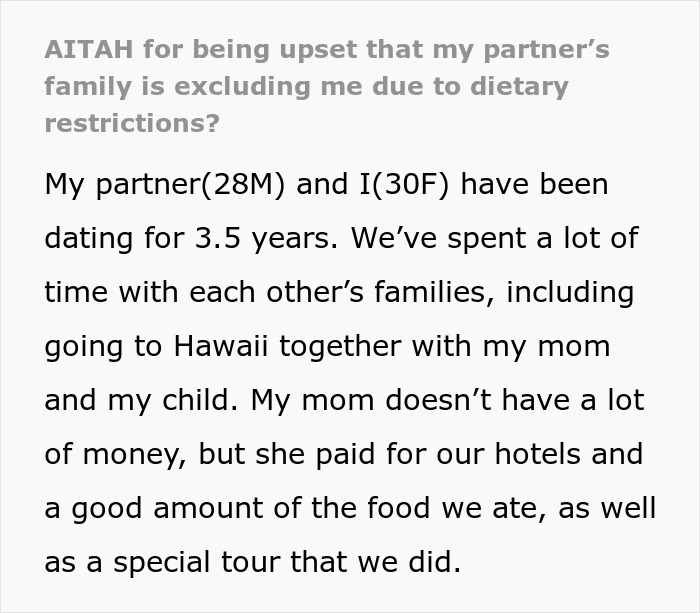
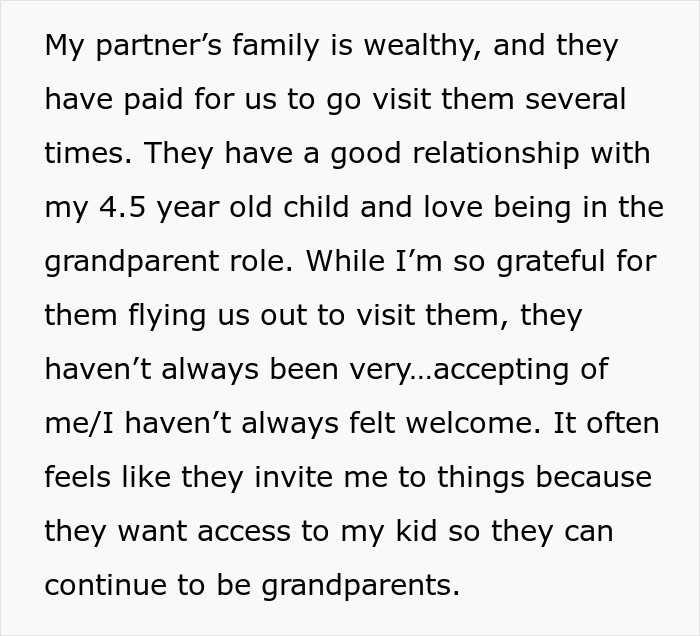
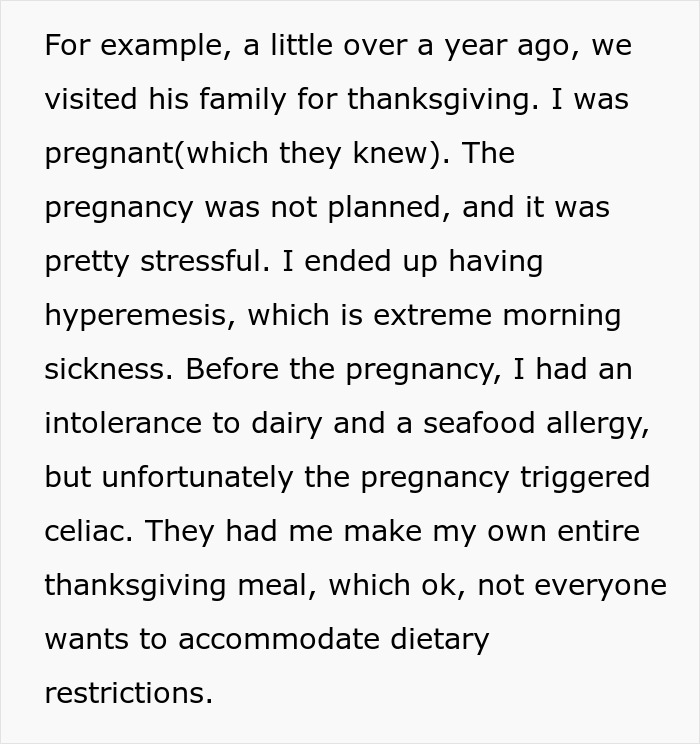

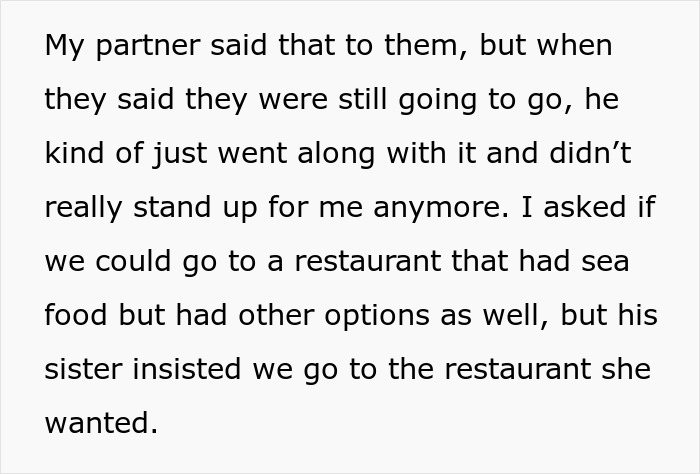
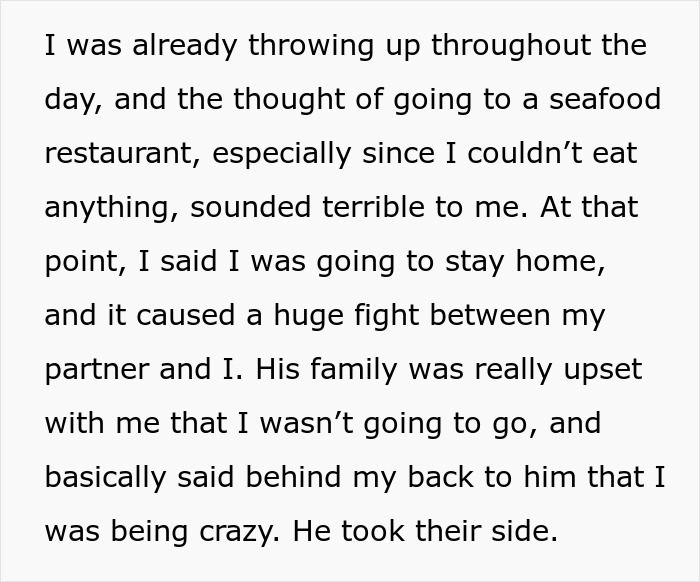

Image credits: sedrik2007 / envato (not the actual photo)



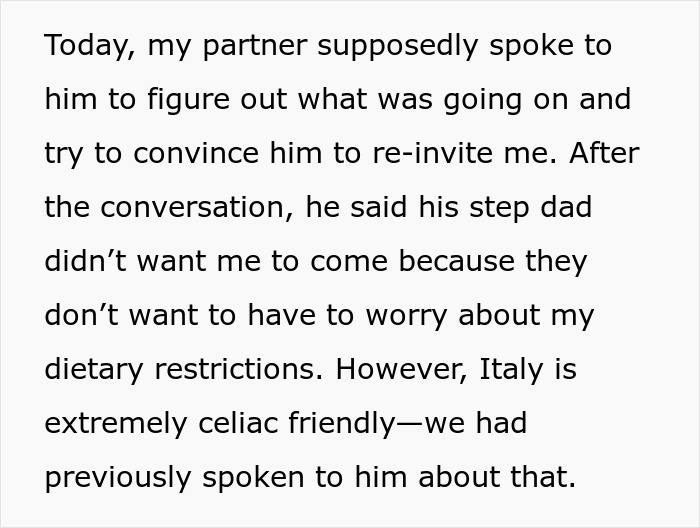


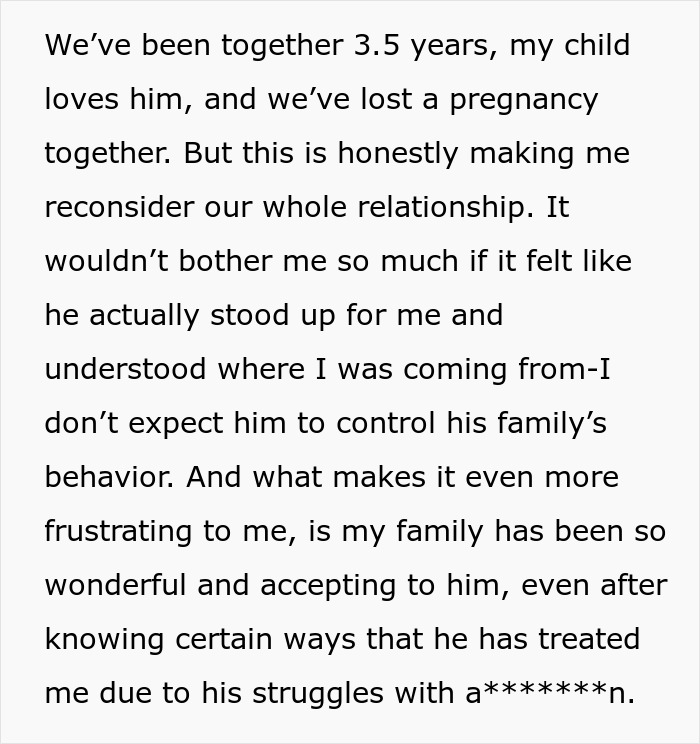
Image credits: Fluffy_Albatross_82
It can be hard to plan around different restrictions
While there are many folks who cut out gluten due to the belief that this course of action has health benefits, the truth is that some people really can’t process it. People with celiac can have a pretty wide and unpleasant range of symptoms, from diarrhea to abdominal cramps. However, often enough, the real issue is getting the people around you to take it seriously.
When a new daughter- or son-in-law has celiac disease, family gatherings can feel like an unexpected catering challenge. Suddenly the humble potluck transforms into a complex culinary puzzle: every crumb of bread, every stray flake of crouton, and every cross-contaminated spatula becomes a potential health hazard. For some families, the extra effort, labeling ingredients, sourcing certified gluten-free substitutes, and meticulously cleaning shared surfaces, feels like more work than they’re willing to do.
It isn’t that they dislike the spouse; it’s that planning a truly safe, gluten-free meal demands more time, organization, and sometimes extra expense. Baking a regular cake takes ten minutes of prep; baking a separate gluten-free version might take twice as long, along with a trip to a specialty aisle or a second grocery store. Washing every dish and utensil, rather than tossing everything in the dishwasher together, can turn a relaxed evening into an hour-long cleanup operation.
For busy families juggling work, school, and extracurriculars, that level of detail can feel daunting. It’s easier to stick to familiar recipes everyone already knows how to make. It’s quicker to invite the in-law over for “takeout night” or say, “Sorry, we’re just doing potstickers”, and quietly hope they’ll pick a safe option themselves. In doing so, however, they inadvertently send the message that accommodating celiac feels like a burden, not a courtesy.
But no meal is worth excluding people over

Image credits: Prostock-studio / envato (not the actual photo)
Of course, there is still a line. Demanding a one to one copy of every dish without gluten is excessive, at the same time, if someone is pregnant, they can also not be expected to spend a lot of time in the kitchen. It’s important to note that in this story, the partner’s family has been consistently excluding her, all the way up to this trip. They don’t even seem willing to allow for the idea that, as a person with celiac, she actually can figure out where and what to eat.
Over time, this can leave the spouse with celiac feeling perpetually on the outside, skipping favorite dishes, eating separately, or enduring bland, pre-packaged “safe” food while everyone else enjoys homemade lasagna and garlic bread. It’s not malicious, but the result is the same: family members miss out on quality time together around the table, and the spouse with celiac feels excluded by the very people who should make them feel most welcome.
Addressing this “laziness” starts with simple changes. Swapping a few ingredients, using gluten-free flour in a beloved recipe, or designating an insulated casserole dish as the “safe zone” can make inclusion effortless. A family that learns to clean one extra bowl or checks labels once in a while discovers that small acts of planning go a long way in making everyone feel at home. In the end, a little effort at the dinner table means a lot more warmth in the family circle. The entire purpose of a “family dinner” is to spend time for that, excluding someone is just counterproductive.
She chatted with some of the commenters

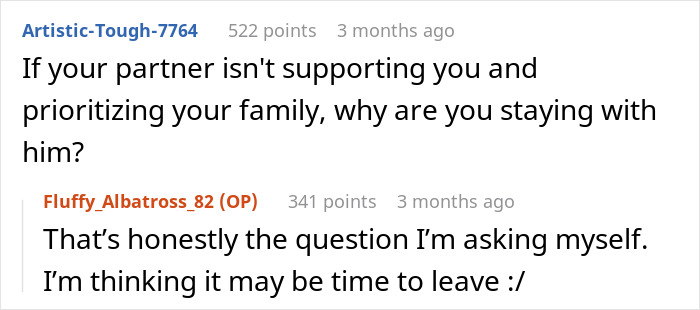
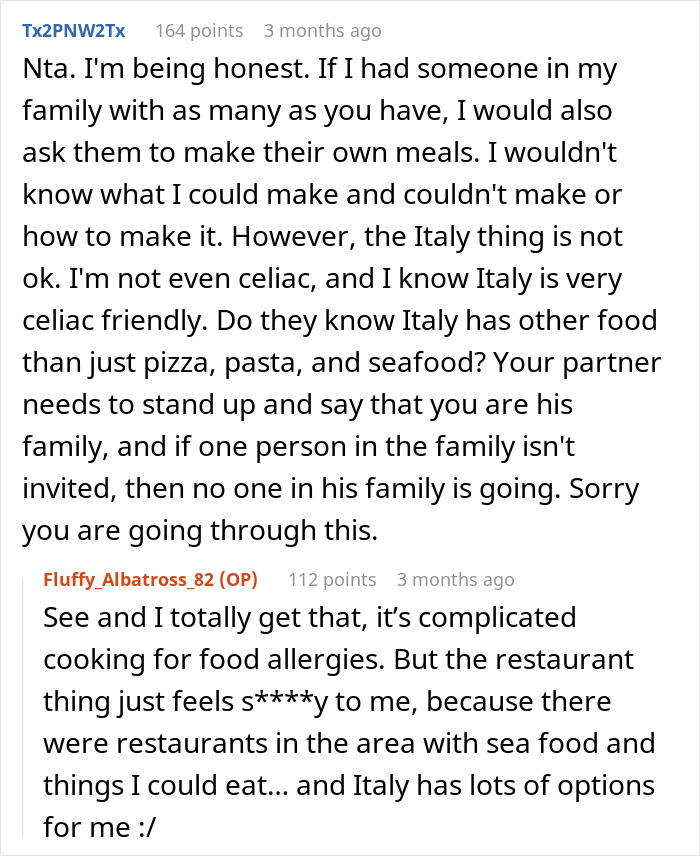

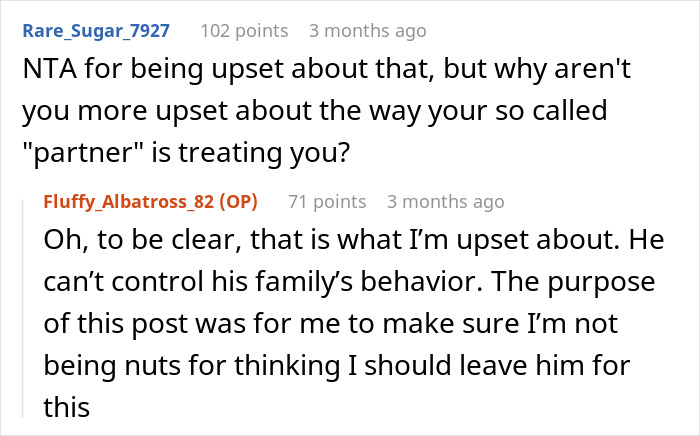
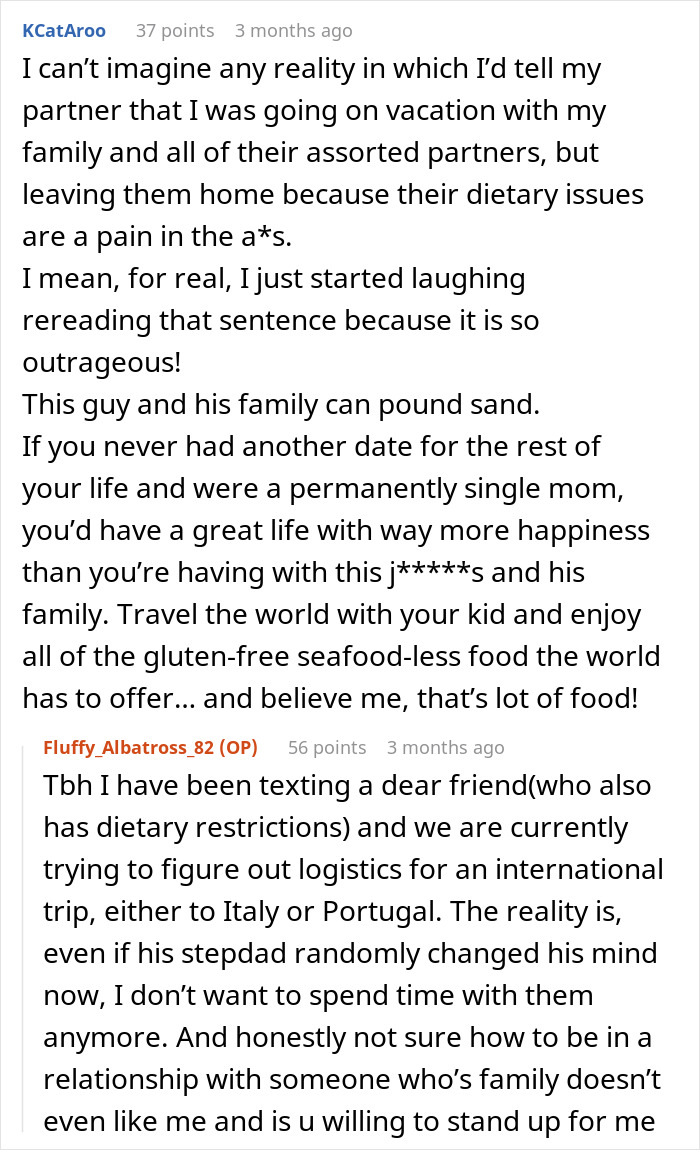

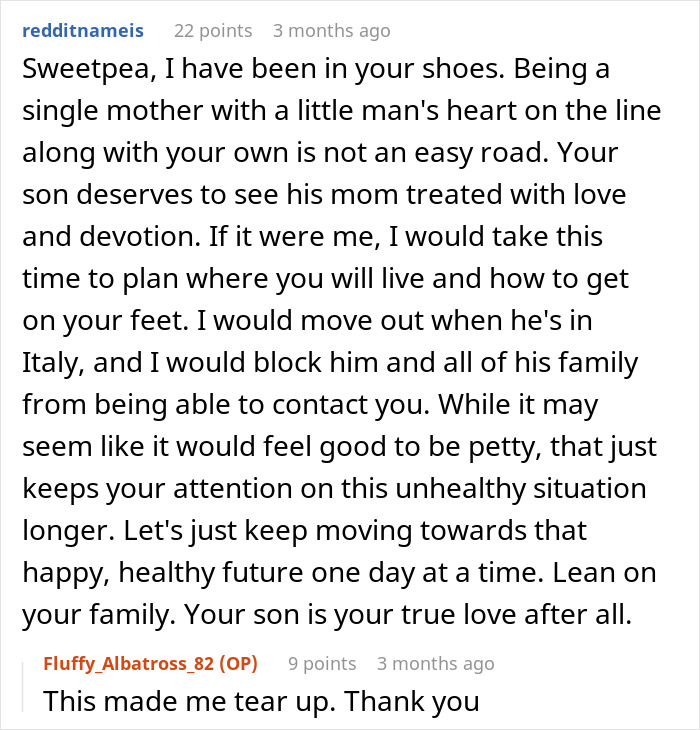

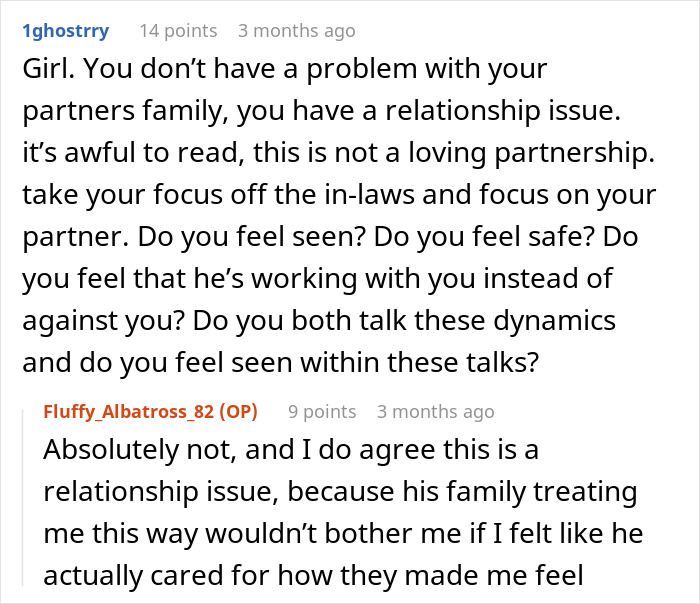

Most thought she was right to be upset



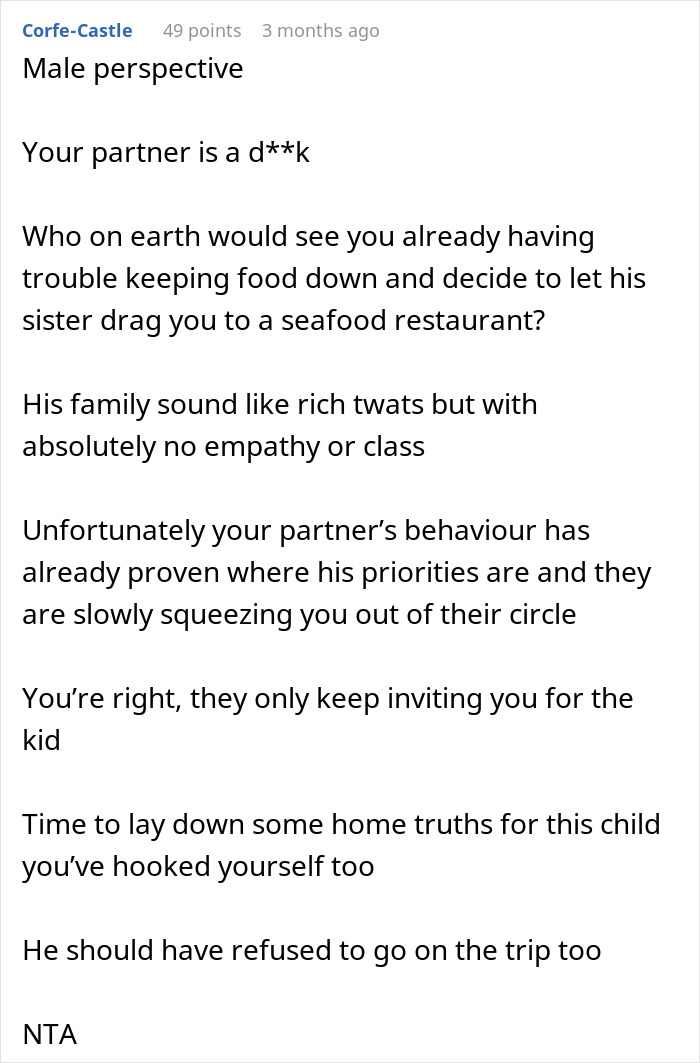




However, some put her story into question
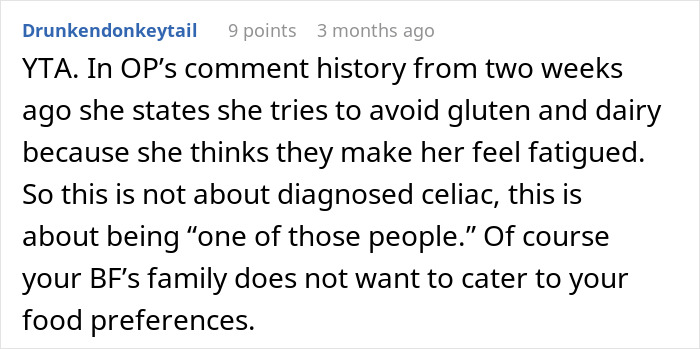
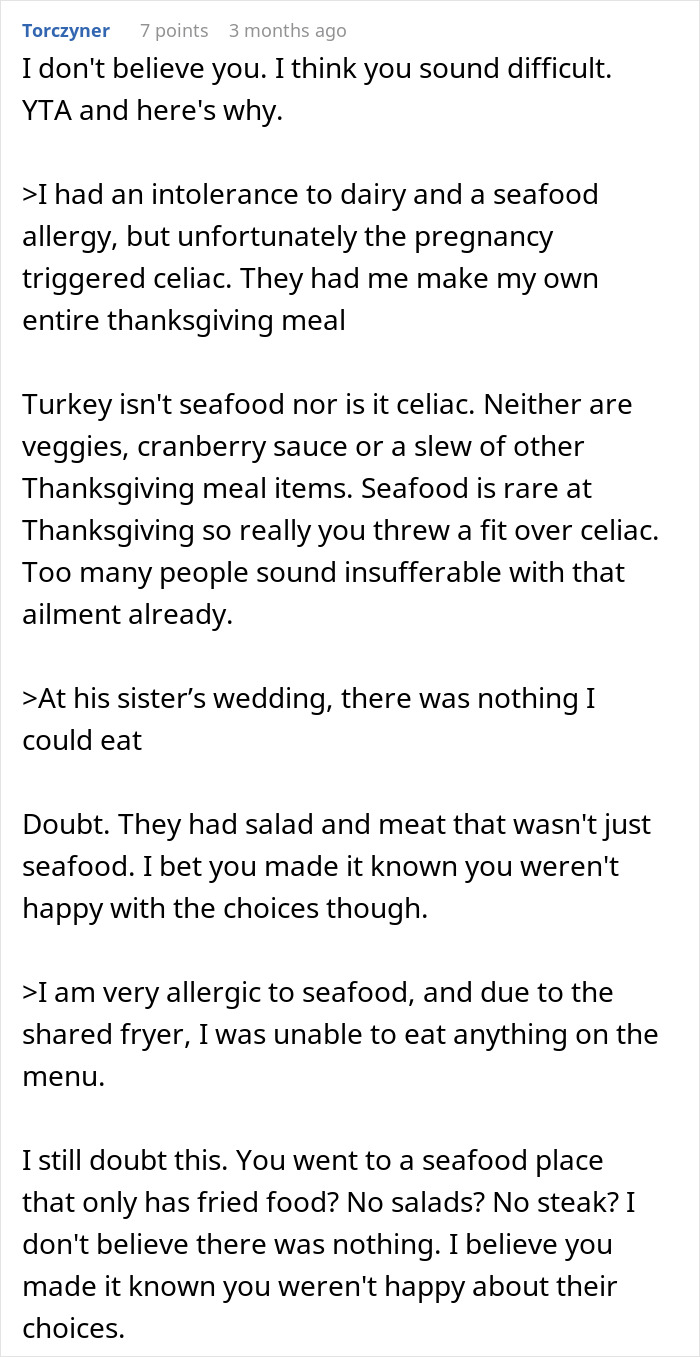
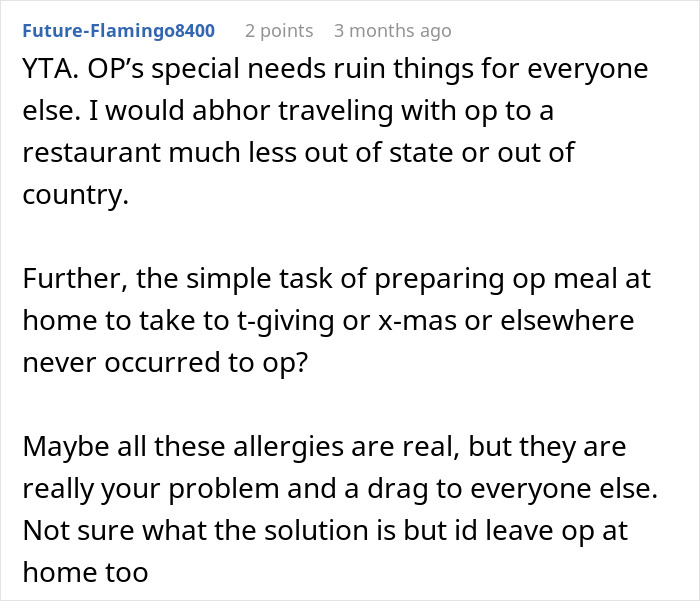





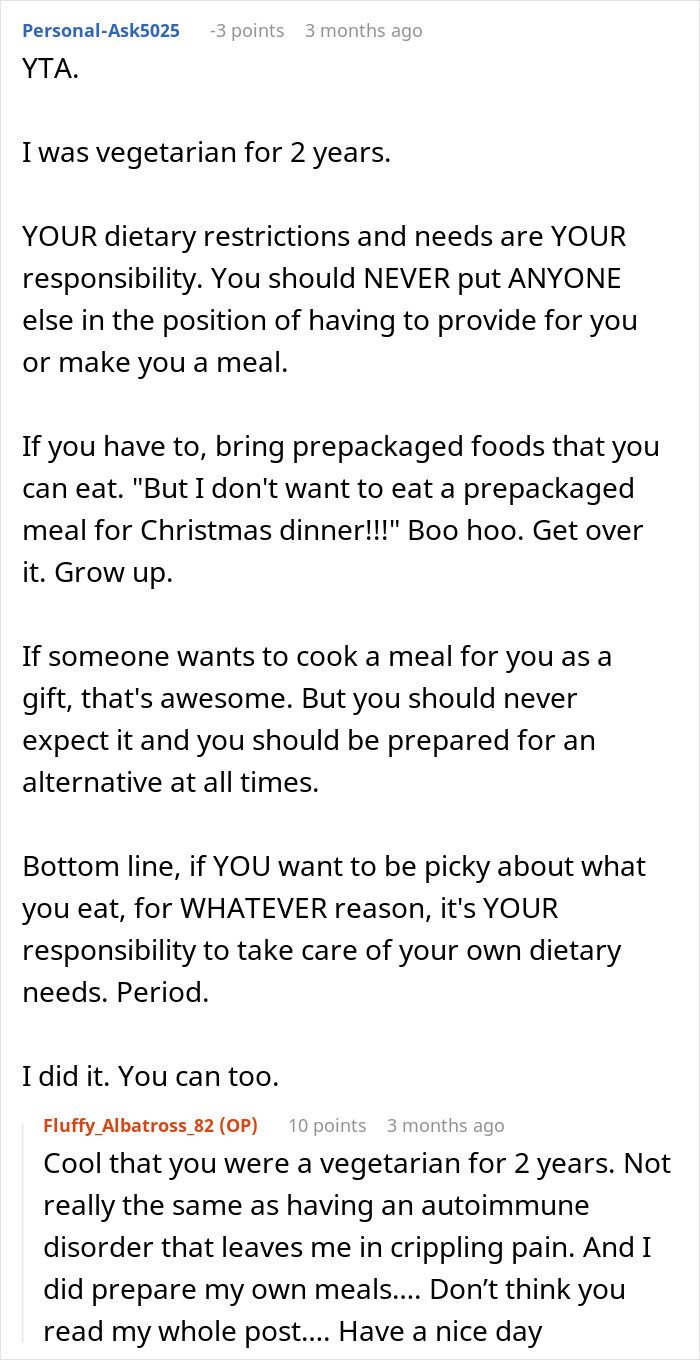
from Bored Panda https://ift.tt/92IZfpy
via IFTTT source site : boredpanda